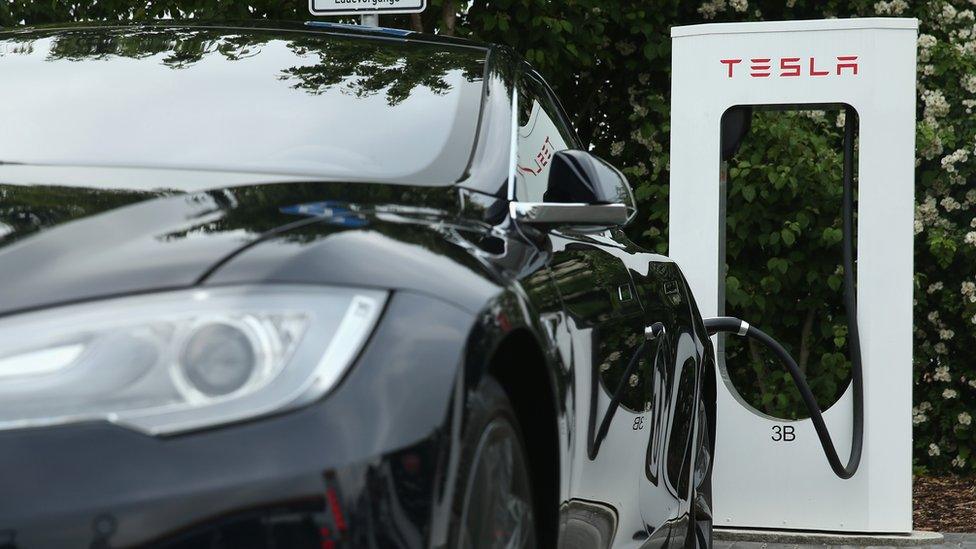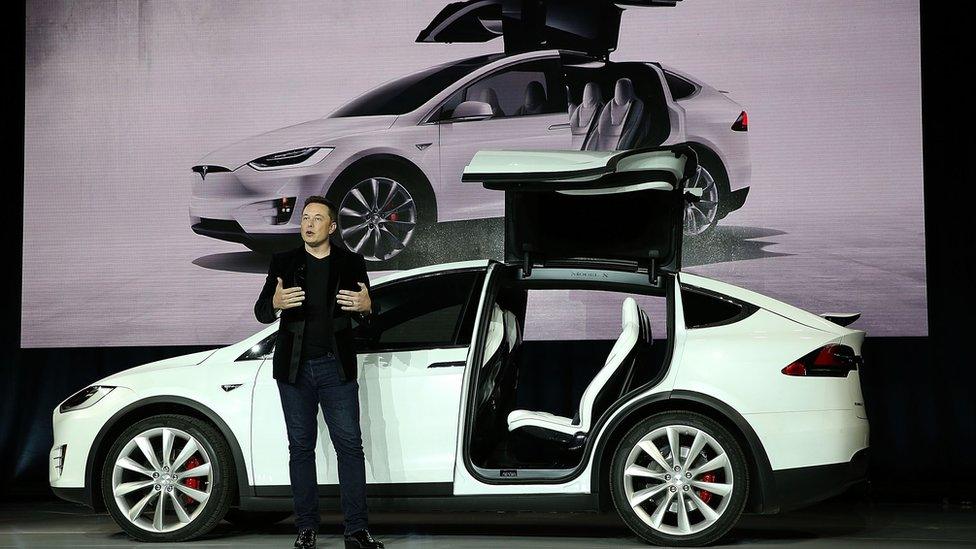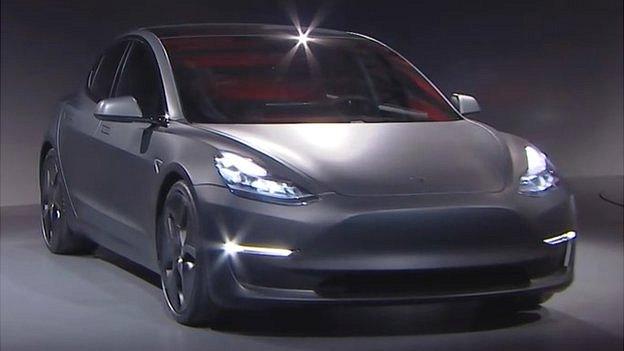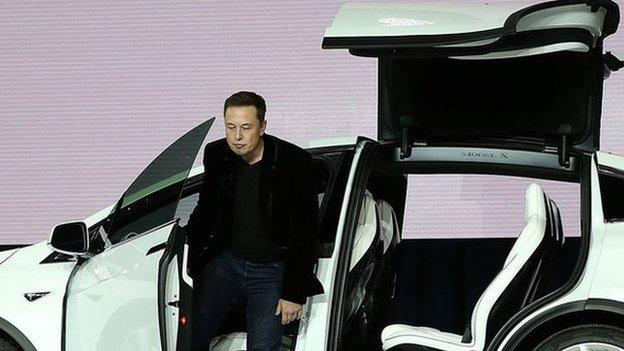Tesla boosts mass market car production
- Published

Tesla Motors says it is on track to produce 500,000 vehicles in 2018, two years earlier than expected.
On Wednesday, the electric carmaker reported , externala first quarter loss of $282m (£195m) up from $154m last year.
The loss was in line with investors' expectations, and the announcement that it was increasing production sent its shares up 4% in after-hours trading.
Tesla had been struggling to ramp up production of its cars including its newest Model X SUV.
Production of the Model X rose from 507 in the fourth quarter of 2015 to 2,659 in the first quarter of 2016.
The company confirmed it was on track to deliver 80,000 to 90,000 electric vehicles this year.
Tesla said it had seen demand rise across all its models, especially its Model 3 - the carmaker's first mass-market product.
Deliveries of the Model 3 are due to hit the market in 2017 and the company received 325,000 orders for the car within a week of announcing it. This could result in $14bn in future sales.
To meet that demand Tesla has cut two years off its timeline for ramping up production.
"Increasing production five-fold over the next two years will be challenging and will likely require some additional capital, but this is our goal," chief executive Elon Musk said in a latter to investors.
Tesla said its capital expenditure - money spent to grow the company - would probably increase by 50%.

Tesla chief executive Elon Musk presenting the Model X
Some investors have been concerned about Tesla's cash flow. The company has been spending money to increase its manufacturing facilities.
Though it has seen orders rise, the carmaker has yet to make a profit.
Production concerns
Since the start of the year Tesla has faced some production hurdles.
A shortage of parts for its Model X stalled production in January and February.
On Wednesday, Tesla announced two of its manufacturing heads were stepping down from their roles.
Greg Reichow, vice president of production will take a leave of absence as soon as a successor can be found.
Josh Ensign, vice-president of manufacturing, is also leaving the company.
- Published1 April 2016

- Published5 April 2016
